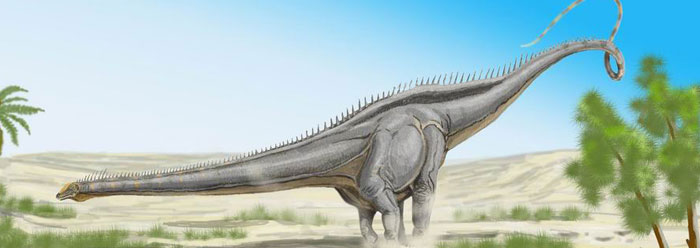First, some of these news reports were simply inaccurate. For example, the British scientists did not say that any dinosaur-made methane caused extinction. In their paper, published in Current Biology, the scientists calculated the estimated volume of methane produced by sauropod dinosaurs.2 They based that on estimates from fossil indications about the number of dinosaurs and how much plant matter they probably ate.
Their study concluded that, because sauropod-produced methane would have rivaled the total methane production from all modern sources, those fascinating long-necked dinosaurs "could potentially have played a significant role in influencing climate through their methane emissions."2 But "influencing climate" is rather different than "gassing themselves into extinction."
Both news and research headlines misrepresented a second key area—the big picture of dinosaur extinction in history. Fox News wrote, "Until now, an asteroid strike and volcanic activity around 65 million years ago had seemed the most likely cause of their extinction."1
But the very fact that all earth continents contain dinosaur fossils, including trackways, clearly shows that the most likely cause of dinosaur extinction was a widespread watery cataclysm like the Flood of Noah.3 Successive waves during the year-long Flood, not an impact from space, would have produced the fast-moving, continent-covering mud that mixed land creatures with sea creatures worldwide, just as the fossils show.4, 5
Could sauropod methane have significantly influenced the climate in the pre-Flood world? The answer is yes. But just as with nitrogen, carbon dioxide, water, and other atmospheric gases, methane levels are constantly maintained and monitored by organisms found across the globe.6 Thus, if sauropods produced more methane, then methane-utilizing microbes would have balanced it so that atmospheric methane would not have reached toxic levels.7
So, did dinosaurs gas themselves to extinction? The answer is no.
References
- Dinosaurs 'gassed' themselves into extinction, British scientists say. Fox News. Posted on foxnews.com May 7, 2012, accessed May 10, 2012.
- Wilkinson, D.M., E.G. Nisbet, and G.D. Ruxton. 2012. Could methane produced by sauropd dinosaurs have helped drive Mesozoic climate warmth? Current Biology. 22(9): R292-R293.
- See Morris, J. 1989. How Do the Dinosaur Fit in? Acts & Facts. 18 (5).
- Thomas, B. Dam Detonation Illustrates Noah's Flood. Creation Science Updates. Posted on icr.org November 9, 2011, accessed May 10, 2012.
- Thomas, B. Dinosaur Fossil 'Wasn't Supposed to Be There.' Creation Science Updates. Posted on icr.org April 14, 2011, accessed May 10, 2012.
- Thomas, B. A Natural Cause of Greenhouse Gas. Creation Science Updates. Posted on icr.org July 16, 2008, accessed May 10, 2012.
- Methanotrophs are microbes that metabolize methane as their source of carbon and energy. They grow either in the presence or absence of oxygen, in oceans, mud, soil, marshes, and especially near methane sources.
* Mr. Thomas is Science Writer at the Institute for Creation Research.
